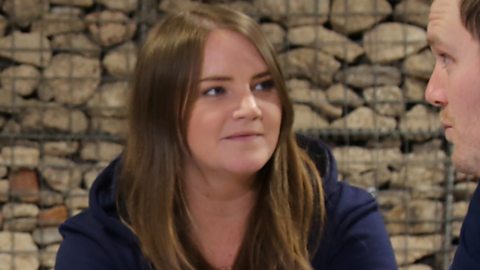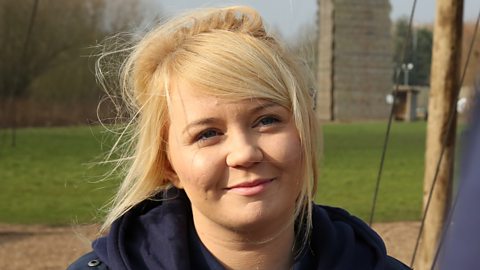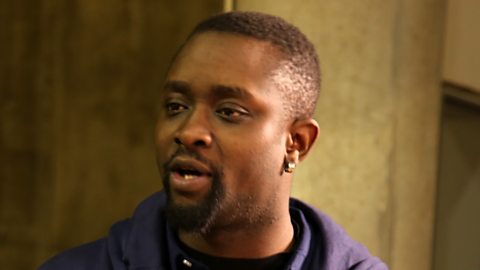Reading and making changes
Watch the video to find out more.
Speaker 1: (TO AUDIENCE) Sometimes we get last-minute changes from the teachers not long before the groupÔÇÖs due to arrive.
Speaker 2: (TO OTHER PEOPLE) Hi Holly.
Speaker 1: Hi Mike.
Speaker 2: IÔÇÖve just had this email from the party leader from this group coming in.
Speaker 1: OK.
Speaker 2: There has been a small change.
Speaker 1: So this group are arriving tomorrow?
Speaker 2: ThatÔÇÖs correct.
Speaker 1: OK so, it looks like they want to change their arrival from 2:30 to 7:00 and they want to change their departure from 1:30 to 4:00?
Speaker 2: Yep.
Speaker 1: Right, OK, so I think that the best thing to do programme-wise for that is to maybe move their activity that they would have had on their arrival day to their departure day.
But we will need to check if weÔÇÖve got the right staff in and that theyÔÇÖre all trained in the same activities that theyÔÇÖve already got on the programme.
Speaker 2: And theyÔÇÖre also bringing some seven-year-olds as well.
Speaker 1: Oh right. OK, well Craig is their group leader so IÔÇÖll get him to look at that and look at the equipment that weÔÇÖre going to need.
(TO AUDIENCE) Reading between the lines of this email, I can see that the change of the group's arrival and departure times has a real knock-on effect to the group's schedule.
Is the meaning clear?
Test your knowledge with this activity.
Asking the right questions
Watch the video to find out more.
Speaker 1: Hi Mike.
Speaker 2: Hi Craig.
Speaker 1: How you doing?
Speaker 2: IÔÇÖm good, how are you?
Speaker 1: IÔÇÖm good man, IÔÇÖm good.
IÔÇÖve just found out about the sports academy group thatÔÇÖs coming in.
We got told they were meant to be eight-year-olds but weÔÇÖve actually got a lot of smaller ones coming, maybe six- and seven-year-olds.
I just wanted to double check with you over equipment wise because weÔÇÖre going to be on a lot of rope activities.
(TO AUDIENCE) With the new information IÔÇÖve received from the teachers I need to put some plans in place to accommodate the younger members of the group.
We also need to adapt some of the sessions to accommodate their needs and also their abilities.
ItÔÇÖs a new situation and it needs to be resolved quickly to ensure thereÔÇÖs no impact on their visit, but also on any of the other groups' visits as well.
(TO OTHER PEOPLE) What about the helmets?
Speaker 2: YouÔÇÖll need extra small helmets.
Speaker 1: Extra small, OK. I know weÔÇÖve got a few on site but weÔÇÖve just had that new delivery.
Which ones? IÔÇÖve got two colours and I donÔÇÖt know which ones are extra small and which ones are large?
Speaker 2: The blues are the extra small and the reds are the large.
Speaker 1: Awesome, IÔÇÖll make sure that we put them aside.
(TO AUDIENCE) I ask specific questions to help to change the programme.
I also clarify that I have the correct information and that I know everything I need to know to move forward.
(TO OTHER PEOPLE) ThatÔÇÖs brilliant, thanks for that.
IÔÇÖll catch up with you in a bit.
Speaker 2: See you later.
Speaker 1: See ya.
Can you sum up the problem?
Test your knowledge with this activity.
Presenting information clearly
Watch the video to find out more.
Speaker 1: (TO AUDIENCE) After every visit, teachers and group leaders have feedback meetings.
We discuss how they found the experience and anything they think we could improve.
(TO OTHER PEOPLE) So what weÔÇÖre going to do here is a little feedback for us.
So how has it been so far?
Speaker 2: Brilliant, yeah. The kids have loved it.
Speaker 1: Excellent.
(TO AUDIENCE) I ask specific questions about the teachers' experience, which I then add to the relevant sections of the feedback forms.
The form is detailed, so I send a summary email to the line manager, Mike, to give him an overview.
I only put the information relevant for Mike.
Keep it to the point because Mike will want to read it quickly.
I use headings and bullet points and highlight any important text in bold.
By presenting the information in a logical order with clear headings, itÔÇÖs easier to extract the relevant information.
Why use bullet points?
Test your knowledge with this activity.
More on Sport and leisure
Find out more by working through a topic
- count4 of 5

- count5 of 5

- count1 of 5

- count2 of 5
